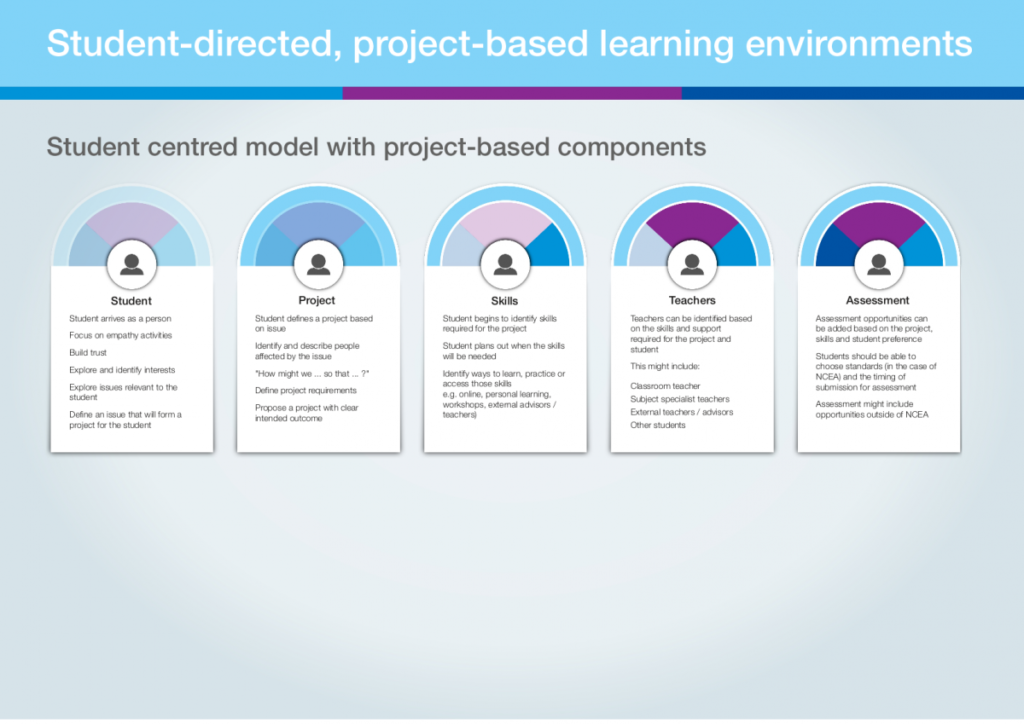Boma Fellowship: Project
11 August 2019
Aim
Enable more flexible student-led, project-based courses of learning at secondary level.
Action
- Continue development of a course design that allows students to lead their learning through personal contexts that form projects of value to them as individuals.
- Explore ways that successful schools have implemented project-based learning along with greater student agency.
- Explore the use of increasingly expanding and changing technologies to support more flexible and individualised learning environments.
- Communicate a modular, student-led, project-based model that is already in use in a secondary classroom and the ways students and teachers can use this model to enhance or change existing courses.
The Model
This model outlines a course of learning for senior secondary students in the New Zealand education system. It uses a student-centred approach that allows teachers to create an environment in which students define projects of personal interest and relevance, identify and define skills required to complete that project, and select assessment that aligns with their learning needs and preferences.
The course design is modular to allow cross-curricular learning, multiple teachers, and flexible assessment for a potentially wide range of qualifications. In New Zealand summative assessment usually leads to the National Certificate of Educational Achievement (NCEA) but other qualifications could be used based on the student’s project and learning needs.
Downloads
Presentation: Student-directed, project-based learning environments
Student Feedback from 2017 and 2019
Summary on the Boma Education Fellows web site
Boma Fellowship: Schools and Visits Slideshow


